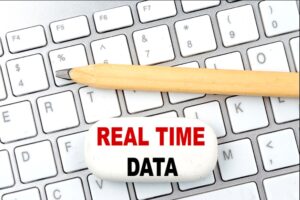My Story: I am a small town girl who dreams to touch the sky. Maybe this is the reason why I am working on cloud. Maybe.
My love for tech started during my first internship. It was my first ever corporate experience, and first time earning an income. I was on top of the world.
Being independent gives a totally different feeling, especially when you are just starting out. I got a lot of exposure, learned a lot of things, and especially how important taking ownership of your work is. I saw how different teams work together in collaboration to run an organization. They were always setting the bar high. But the one team which grabbed my attention was the tech team.
I was mesmerized seeing people working so passionately, learning new things in such a short time, implementing them, and leveraging tech for growth.
So, I dug deeper into it and was amazed by the revolutionary impact technology was having on the world. I was intrigued by how technology can bring people so close from all over the globe, how websites were made so beautiful and attractive, and why apps are built for the majority of the population which uses mobile.
Everything seemed amazing and was making a bit of sense also to me. And that’s when I started to delve into tech.
I started by learning a bit of HTML and CSS via online resources and was also aware of the data field. I got myself enrolled in a data science course, and realized that simply having an interest in something is not enough. You really need to put in the effort and time. And being from a non-tech background, I found the course challenging.
Being a business management student, it was not possible to get a job in tech. I also didn’t know how and where to start. So, after completing my internship, instead of continuing in the same field, I decided to make a career pivot. But I was stuck on how to move ahead as I had already taken a Data Science course and wasn’t able to complete it. And because of this, I dropped the plan and started preparing for MBA.
I took the various entrance exams, did the interview calls, and even got the chance to pursue it. But I was not sure if it was the right fit for me, so I decided to think about what direction I wanted to take with my life. I researched a lot, talked to my parents and friends, and took guidance from others as well. But in the end, all that matters is what you want out of your life, where your interests lie, and the rest will follow. It was clear now, so without any delay, it was time to prepare myself for the journey ahead.
I knew I was interested in FinTech and came to know that there was a relatively new Master’s program starting in the banking and financial analytics domain in one of the most prestigious universities in my country, so not wanting to miss a chance, I applied straight away. I prepared for the entrance exam and then for the interview, and finally, I aced them. With this, my two years of transition journey started, and it was definitely not a bed of roses.
I was exposed to coding for the first time since high school so getting the hang of it was not easy. Learning two to three programming languages like C, Python and R in a short time was too much for me. Plus, subjects like math, probability, statistics, behavioral and corporate finance, data analytics, machine learning, artificial intelligence, game theory, etc., were also all part of my degree.
Many times, it was overwhelming to learn so much with such tough subjects. I had a lot of sleepless nights and sometimes anxiety overpowering me with so many assignments, internals, projects, presentations, and more, and I always doubted whether I would be able to sail through it or not. But with god’s grace, I did it.
But getting a degree is not enough. There is always something extra that needs to be done, and I embraced it. I did internships.
As a data science and business analytics intern, I worked on three different projects, which helped me gain a lot of clarity on how to apply what I learned. I also worked as a research intern, where I conducted a survey, analyzed the results, and presented my findings in a dissertation. I even did end-to-end projects on my own taking advantage of available online resources.
Besides this, I also did certifications in visualization using different tools, SQL, data science, and machine learning.
But simply learning will never be enough. You have to keep doing hands-on work simultaneously. I published Tableau dashboards, attended webinars and workshops, prioritized self-study . If you don’t put in the time required, then you won’t reach your goals.
Learnings: Self-awareness is the key. You need to be aware of what you want out of your life. I know it’s not easy, but you have to reflect on yourself and analyze where your interest lies and where you want to head in your career. The answer might not come immediately, but it eventually will. So, don’t stress out too much.
Above all, you can’t transition to a completely different field immediately. It takes time, patience, and continuous learning. Sometimes it might be hard, and you want to quit but remember why you started. Keep your goal in front of your eyes and visualize it. Visualize the future you. It will help you stay motivated and keep you on track. I always do it. By visualizing where I want to reach and where I am now, I am able to identify the gaps that needs to be filled in order to reach there.
My journey from a business management graduate to a data engineer wasn’t easy but definitely worth it and, in the end, fulfilling.
Technologies I work on: Being a data engineer, most of my work revolves around organizing data to make it easy for other systems and people to use. I work on ETL tools, Python, PySpark, Databricks, SQL, Spark, and more. And as the amount of data is increasing exponentially, having cloud knowledge is also a must.
I started my data engineer journey working on the cloud itself. The cloud platform I work on is Azure. It is quite vast in itself. You don’t have to learn everything. Some of the major and more frequently used services are Storage account, Azure Data Factory, Azure Databricks, Azure SQL Database, Azure Synapse, Azure Functions, Key Vault, and more.
How can you break into it? If you really want it, then you’ll push yourself to achieve it. As the famous saying goes, ‘Where there is a will, there is a way.” You just need to make it your priority and have a structured path to follow. Learn things step-by-step. Don’t start everything simultaneously, as you might get overwhelmed and end up losing motivation.
I wanted to do a Master’s degree, so I did it in the relevant field, but it’s not necessary. However, it was helpful, at least to me. You can opt for some good certifications for each of the skills required or can opt for full-fledged training, which covers it all from start to end. You’ll also need to have some practical hands-on skills, so work on some end-to-end projects. Also, apply for internships as you’ll get to know how the work is carried out in the real world. You’ll get a lot of exposure and will get to learn a lot of things.
Build a portfolio and a good LinkedIn profile covering all the major things you have done and achieved in your life. Be active there and build a great network. It’s going to help you a lot in the long term.
Also, you cannot ignore soft skills. You have to communicate with your team, managers, stakeholders, etc., and put your point across, and even before that, you have to crack the interview. So, having good communication skills is a must.
Advice for hiring managers: Stop expecting everything from a single candidate. It’s not possible. I have seen a lot of job descriptions that want everything. They want data engineering, data analyst, and data science skills in a single candidate. If you go with this approach, you’ll miss out on a lot of good candidates.
Focus more on niche skills instead. With so many technological advances emerging at such a fast pace learning all the things is not possible. Everyone has their own unique set of skills and capabilities so give them a chance.
Also, many entry-level jobs require people with two to four years of experience, which should not be the case. Give a chance to freshers as well. They bring a whole new perspective and enthusiasm with them and might turn out to be the best investment for your organization. But don’t expect a fresher to know a lot of advanced skills and stop comparing them with the experienced candidates. I have faced this situation a lot in the interviews.

Feenaz is a Data Engineer and an active content creator on LinkedIn. Being a business graduate, she also brings in the business intelligence skills required to get the knack of the business problem before applying the Data Engineering skills. In her pastime, she loves to read books, learn new concepts and do meditation.


